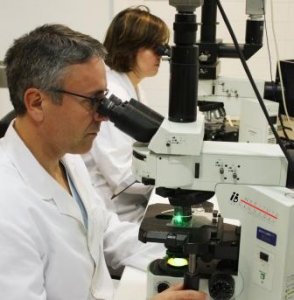
Using stem cells as the answer to ovarian failure. Hope or reality?
Significant progress has been made over the last few decades in the field of fertility in order for patients to be able to have children of their own. However, one of the greatest challenges in reproductive medicine is pregnancy in women with slim chances of obtaining their own eggs. For example, women with premature ovarian failure (in other words, egg loss at a young age) or, quite simple, women over the age of 40.
There has been a deep-rooted belief around for many years that the eggs in the ovary come to an end when women reach a certain age. However, over the last decade, several studies point out the presence of ovarian stem cells that play a role in ovary regeneration and that could potentially be used as an endless source of eggs in order to preserve women’s fertility. These stem cells are found in the ovarian cortex and studies demonstrating isolation of the cells from the ovarian tissue and collection of cells similar to oocytes following culture handling under specific conditions, have already been published.
The option of using ovary stem cells in clinics to replace eggs in women with very low ovarian reserve has brought a great deal of hope to many women and reproductive medicine specialists. It is for this reason that the Poor Ovarian Response Unit at Instituto Bernabeu has looked very carefully into this possibility in order to determine if it is currently a reality or just an option for the future. Unfortunately, the reality of the situation is that there is still a long road ahead before they can safely be used in order to preserve fertility. First of all, we need to understand the process through which these cells give rise to oocytes within the ovary itself, as well as optimising the conditions for obtaining oocytes from cells in culture mediums. Last of all, we need to prove that the oocytes obtained in culture mediums can be fertilised and lead to normal embryos. However, it is a very promising option that we hope to be able to use in the future in order to provide an answer to the important issue of premature ovarian failure and the irreversible depletion of a woman’s eggs after the age of 40.
Dr Ruth Morales, molecular biologist at Instituto Bernabeu.
